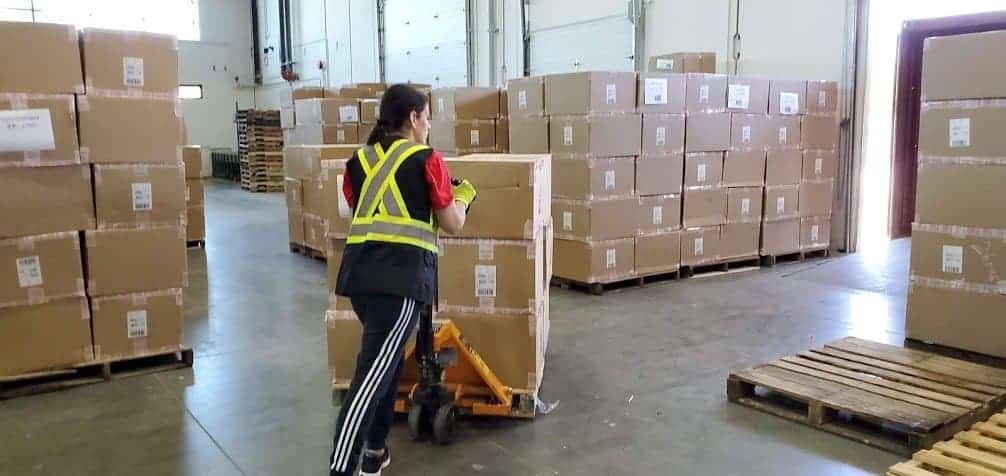Selecting the right lumper service provider is crucial for the efficiency and safety of your warehouse operations. Lumper services specialize in loading and unloading freight, and their expertise can significantly impact your supply chain performance. Here are key factors to consider when choosing a lumper service provider to ensure you make an informed decision.
1. Experience and Expertise
Industry Experience: Look for a provider with extensive experience in the logistics and warehousing industry. Experienced providers are likely to have encountered and solved a variety of challenges, making them well-equipped to handle your specific needs.
Specialized Skills: Ensure the provider has expertise in handling the types of goods you deal with. Different products require different handling techniques, and a provider skilled in your specific industry will be more efficient and careful with your goods.
2. Reputation and References
Client Testimonials: Seek out testimonials and reviews from current or past clients. Positive feedback and success stories are indicators of reliable service.
References: Don’t hesitate to ask for references. Speaking directly with other businesses that have used the provider can give you valuable insights into their reliability, professionalism, and performance.
3. Compliance and Safety Standards
Training and Certification: Verify that the provider’s workers are well-trained and certified in relevant safety and handling procedures. Proper training reduces the risk of accidents and ensures compliance with industry regulations.
Safety Record: Examine the provider’s safety record. A strong safety record indicates a commitment to maintaining a safe working environment, which is crucial for protecting both their employees and your goods.
4. Technological Capabilities
Advanced Equipment: Check if the provider uses modern, well-maintained equipment. Advanced tools and machinery can enhance efficiency and reduce the likelihood of damage during the loading and unloading process.
Technology Integration: Look for providers that utilize technology such as real-time tracking systems, automated scheduling, and data analytics. These tools can provide transparency, improve coordination, and help optimize your overall logistics operations.
5. Flexibility and Scalability
Adaptability: Choose a provider that can adapt to your fluctuating needs. Whether you have seasonal spikes in demand or unexpected increases in workload, the provider should be able to scale their services accordingly.
Range of Services: A comprehensive service provider that offers a range of logistics solutions can be more beneficial. This flexibility can simplify your operations and provide a one-stop solution for various logistics needs.
6. Cost-Effectiveness
Transparent Pricing: Ensure the provider offers clear and transparent pricing. Hidden fees and unexpected charges can quickly escalate costs, so it’s important to understand the full cost structure upfront.
Value for Money: While cost is an important factor, it shouldn’t be the only consideration. Evaluate the overall value provided, including efficiency, reliability, and additional services that may justify a higher price.
7. Customer Service and Support
Responsiveness: Gauge the provider’s responsiveness to inquiries and issues. Prompt and effective communication is essential for addressing any problems that may arise and ensuring smooth operations.
Dedicated Support: Check if the provider offers dedicated account managers or customer support teams. Having a single point of contact can streamline communication and provide better support for your specific needs.
8. Environmental Practices
Sustainability Initiatives: In today’s eco-conscious market, it’s important to consider the provider’s commitment to sustainability. Providers that use energy-efficient equipment and follow green logistics practices can help reduce your environmental footprint.
Waste Management: Evaluate their waste management practices, including recycling and proper disposal methods. Sustainable practices not only benefit the environment but can also enhance your company’s reputation.
9. Contract Terms and Flexibility
Clear Terms: Ensure the contract terms are clear and favorable. Understand the duration of the contract, the scope of services, and any penalties for early termination.
Flexibility: Look for flexibility in contract terms, such as the ability to adjust services as your needs change. This can provide peace of mind and ensure that the provider remains a good fit as your business evolves.
10. Performance Metrics and Accountability
Service Level Agreements (SLAs): Check if the provider includes SLAs in their contracts. SLAs define performance standards and accountability measures, ensuring the provider meets your expectations.
Performance Tracking: Providers that offer regular performance reports and track key metrics can help you monitor their effectiveness and make informed decisions about your logistics operations.
Conclusion
Choosing the right lumper service provider is essential for maintaining efficient and safe warehouse operations. By considering factors such as experience, reputation, compliance, technological capabilities, flexibility, cost-effectiveness, customer service, environmental practices, contract terms, and performance metrics, you can find a provider that meets your specific needs and enhances your supply chain performance. Taking the time to carefully evaluate potential providers will pay off in improved efficiency, reduced risks, and better overall outcomes for your business.
